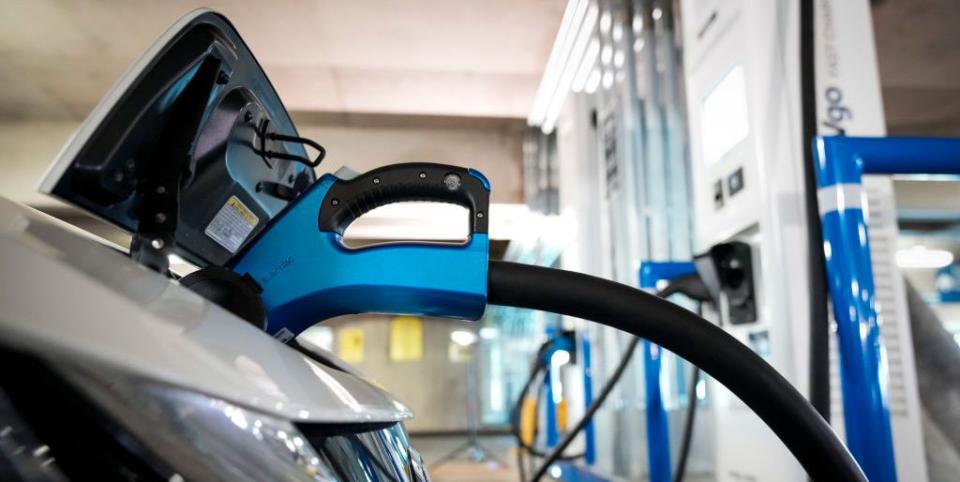Tax Credits Survive Contentious Battle over Debt Ceiling

Electric-vehicle tax credits of the Inflation Reduction Act which had been removed in an earlier House bill, HR 2811, are back on.
The Financial Responsibility Act of 2023 must survive a vote scheduled for Wednesday by the full House of Representatives before it goes to the full Senate, where amendments could be presented.
Good news for clean vehicle advocates: EV and advanced manufacturing tax credits, as well as a provision of the IRA with the goal of adding 500,000 EV chargers across the US by 2030, has a good deal of bipartisan support.
We have scoured all 99 pages of the Fiscal Responsibility Act of 2023, a deal House Speaker Kevin McCarthy (R-CA) struck with the Biden White House over the Memorial Day weekend (when normal people were watching the Indianapolis 500 and the Monaco Grand Prix, or were trying to catch the Coca-Cola 600 NASCAR Cup race at Charlotte) in their effort to prevent a federal debt default.
The bottom-line impact for an anxious auto industry: Electric-vehicle tax credits of the Inflation Reduction Act which had been removed in an earlier House bill, HR 2811, are back on.
Tax credits for advanced manufacturing, which will include EV and battery factories, credits for clean commercial vehicles such as EV delivery vans as well as individual taxpayer credits for used plug-in hybrids and fuel-cell vehicles, have survived the contentious battle between the Biden administration and House Republicans—so far.
The FRA of 2023, which as of Monday did not have a House resolution number attached, must survive a vote scheduled for Wednesday by the full House of Representatives before it goes to the full Senate, where amendments could be presented. Nothing is guaranteed.
“Conservative Republicans and progressive Democrats have both been quick to voice concerns with certain aspects of the deal,” The Hill reports.
Since we posted this story, Treasury Secretary Janet Yellen revised her warning of federal debt default by four days, to June 5. That’s still very close.
But it appears the provisions of HR 2811, the bill passed by the House in April, did not become a sticking point in talks.
Central to the FRA are social safety net programs and rescinding of unallocated coronavirus relief funds made available since 2020. If a state agency did not spend all the funds allocated, the remainder of funds come back to the federal government.
This includes the remaining portion of Federal Highway Administration funds for highway infrastructure programs. Federal coronavirus relief provided $475.6 billion for highway infrastructure. The new House bill does not specify how much of that remains unspent.
The good news for clean vehicle advocates is that EV and advanced manufacturing tax credits, as well as a provision of the IRA with the goal of adding 500,000 EV chargers across the US by 2030, has a good deal of bipartisan support.
Consider that oil-rich Texas is headquarters to Tesla, which will be able to take advantage of the advanced manufacturing tax credits and will benefit from building Superchargers with federal support, to fit all brands of EVs.
And the IRA’s new consumer tax credits on EVs throws out the ramp-down of the credit once a manufacturer has sold 200,000 electric-powered cars and trucks.

 Yahoo Autos
Yahoo Autos 